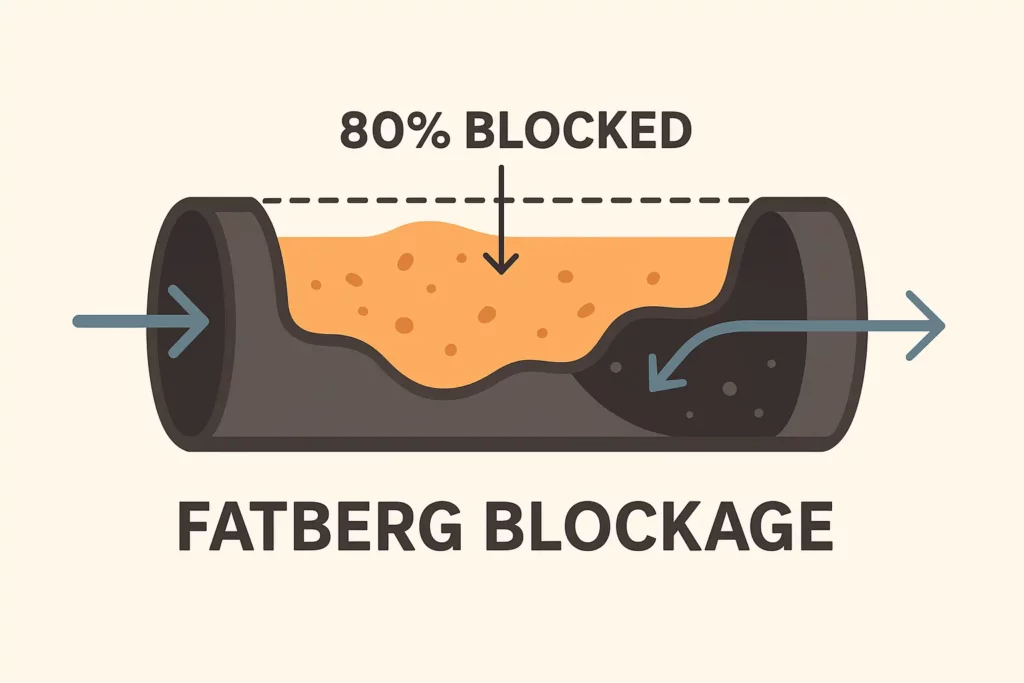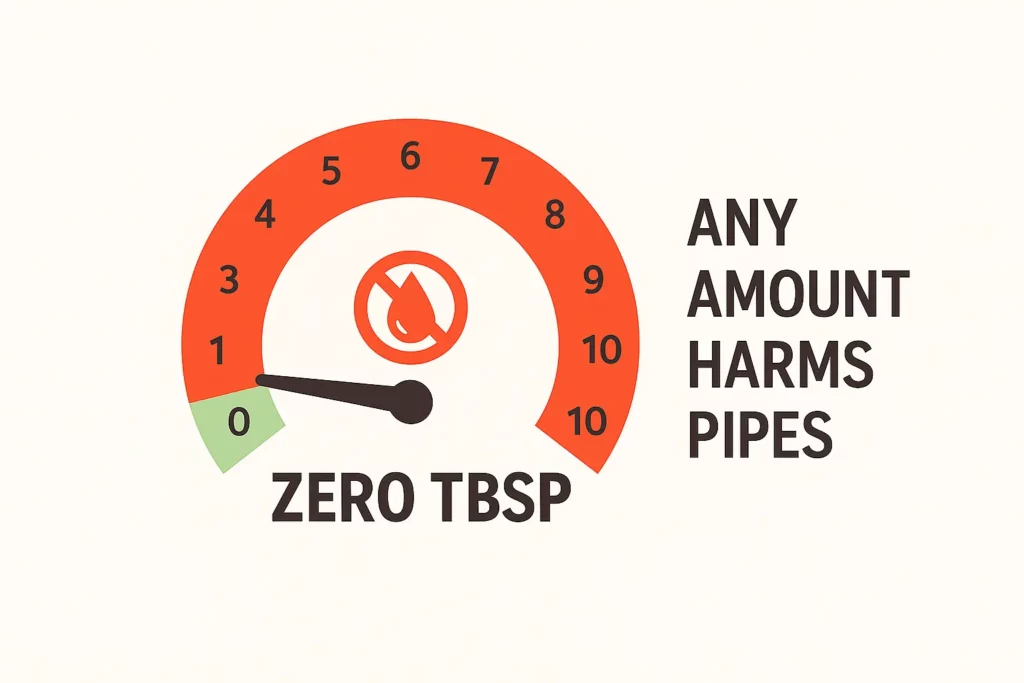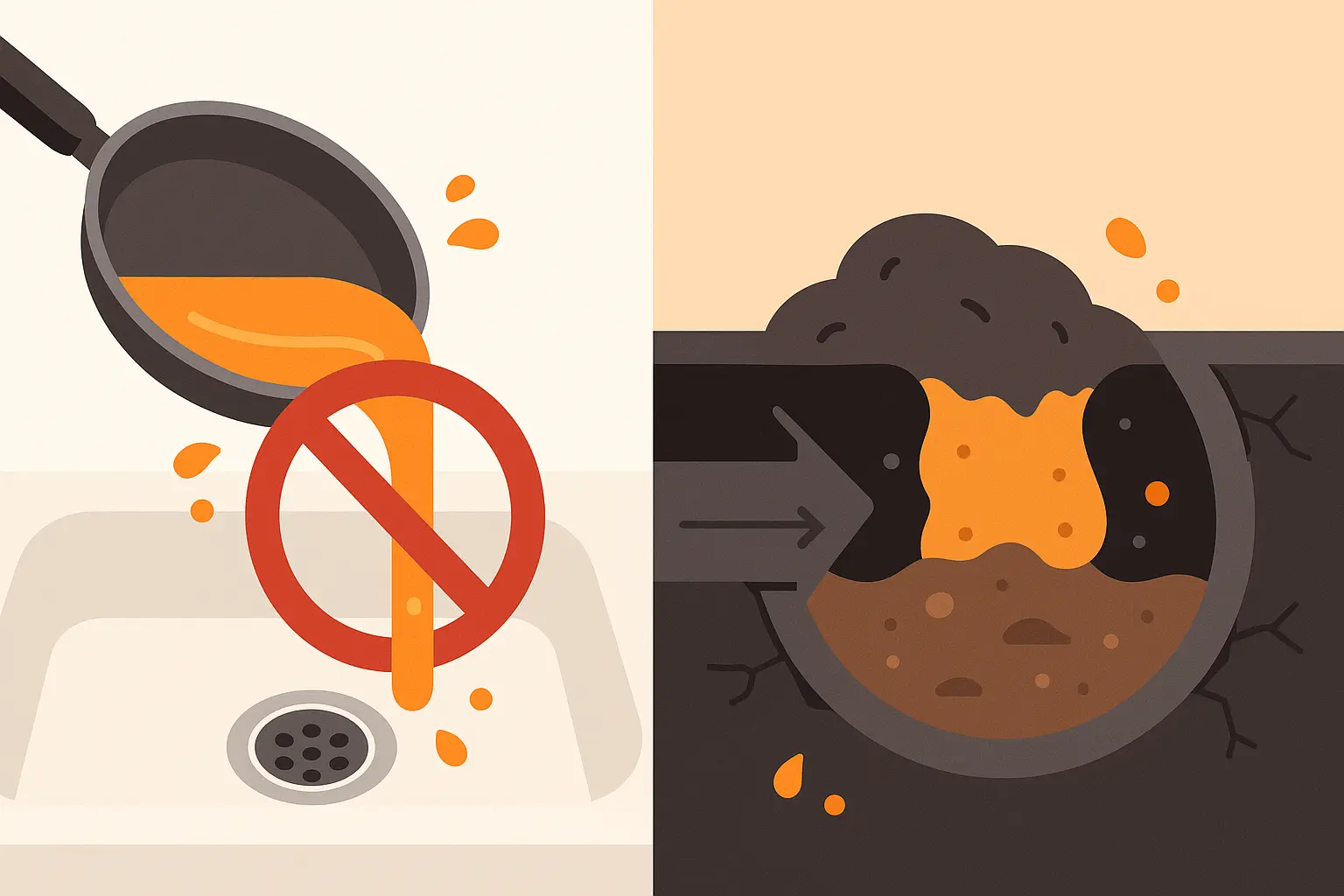Jump to a question
What is the best way to dispose of cooking oil?
Cool used cooking oil completely, pour it into a sealed container like a glass jar or resealable container, then throw it in the trash. For larger amounts, freeze the oil or take it to specialized recycling services.
The safest disposal starts with letting your oil cool to room temperature—never handle hot oil. Once cooled, pour it into any leak-proof container—an old glass jar with a tight lid, a plastic container with taped lid, or even a zipper freezer bag. Seal it tightly to prevent leaks and toss it in your regular trash.
For those who prefer the freezing method, pour your cooled oil into a freezer-safe container (plastic tub or silicone mold) and freeze until solid (at least 8 hours). The frozen block won’t leak during garbage collection. You can also mix oil with cat litter, sawdust, or flour to solidify it, making disposal even easier. Even small amounts benefit from this treatment.
Want to be more eco-friendly? Strain your oil through a coffee filter to remove food particles and reuse it up to three times. Many recycling centers accept used cooking oil, and some restaurants collect it for proper recycling too.
Pro tip: Always wipe pans with paper towels before washing to keep even a teaspoon of oil out of the pipes.
Summary: Cool cooking oil completely and seal it in a container for trash disposal, or take it to recycling services—never pour oil down the drain or garbage disposal.
Why is it bad to dump oil?

Dumping oil causes severe damage: it solidifies in pipes creating clogs, forms massive fatbergs in sewer systems, leads to expensive repairs ($500–$15,000), and causes environmental damage to aquatic life.
When you pour cooking oil down the drain, it immediately coats your drain pipes. As it cools, the oil solidifies and traps food debris, creating blockages. Dish soap can’t save you; oil resolidifies downstream. These clogs eventually lead to burst pipes and flooding in your home.
The problem extends far beyond your kitchen sink. In the sewer system, oil combines with calcium in wastewater to form “fatbergs”; massive grease blockages that can shut down entire sewer lines. London’s largest fatberg weighed 130 tons; more than a blue whale, according to Thames Water (2017). These fatty blobs cause raw sewage to overflow into streets and homes, creating public health emergencies.
Environmentally, oil forms a surface film on water that blocks oxygen, killing fish and aquatic life while disrupting wastewater treatment plant operations. The financial impact hits hard too: home repairs range from $500–$15,000, municipal fines run $2,500–$25,000, and the average incident cost reaches $47,000. Your insurance premiums will likely increase as well.
The restaurant industry faces even stricter oversight, with commercial kitchens required to install grease traps to prevent this damage.
Summary: Dumping oil solidifies in pipes causing expensive clogs, creates fatbergs that block sewer systems, kills aquatic life, and can result in thousands in repairs and fines.
How much cooking oil is safe to pour down the drain?

Zero; no amount of cooking oil is safe to pour down the drain. Even small amounts accumulate over time, combining with other fats to create blockages.
There’s no safe threshold because oil doesn’t dissolve in water. Each time you pour even a teaspoon down the drain, it adds a new layer to your pipes. Small amounts from multiple homes combine in the sewer system, creating community-wide problems.
Many people think they’ve found workarounds, but they’re wrong. Hot water? It only carries liquefied oil 50 feet before it re-hardens. Dish soap? Emulsifies for a minute, then separates downstream. Garbage disposal? It grinds solids, not fats—the oil just coats more pipes.
The solution is simple: wipe all pans with paper towels first, use a sink strainer to catch particles, and remember that every drop prevented helps. Commercial kitchens understand this, using grease traps to capture 100% of oil before it enters drains. Home cooks should adopt the same zero-tolerance approach.
Summary: No amount of cooking oil is safe for drains even tiny amounts accumulate into major blockages, so always dispose of all oil properly.
Is putting oil down the drain illegal?
Yes, in many jurisdictions putting oil down the drain is illegal and can result in fines from $2,500–$25,000. Over 80% of U.S. cities enforce FOG (fats, oils, and grease) ordinances to protect sewer systems.
Municipal violations typically start with $2,500 fines for first offenses, escalating to $25,000 for repeat violations. Some areas even pursue criminal charges for severe cases. Cities regulate this strictly to protect sewer infrastructure, prevent environmental contamination, and reduce wastewater treatment costs.
Restaurants face even tougher enforcement. They must install and maintain grease traps, undergo regular inspections, and risk losing business licenses for non-compliance.
Even if not explicitly illegal in your area, you remain financially responsible for any damage to your own home or municipal systems. Pouring grease or used cooking oil down drains also violates most rental agreements and HOA rules, potentially leading to eviction or fines.
Summary: Putting oil down the drain is illegal in most areas with fines up to $25,000; dispose of oil properly to avoid legal and financial consequences.
What to do if you accidentally poured grease down the drain?
Act fast: ½ cup baking soda, 1 cup vinegar, 10 minutes, then 2 gallons boiling water. For serious clogs, call a plumber.
Time is critical when grease goes down your drain. Stop using all drains immediately to prevent pushing oil deeper into pipes. Pour ½ cup baking soda directly down the affected drain, followed by 1 cup white vinegar; it will foam vigorously. Cover the sink and let this mixture work for 10 minutes before finishing with 2 gallons of boiling water.
If water still drains slowly, try using a plunger or drain snake to break up forming clogs. Enzyme cleaners designed for grease can help, followed by running a slow stream of hot water for 5 minutes. However, avoid these common mistakes: don’t use dish soap (it only delays solidification), skip chemical drain cleaners (they damage pipes), and never run the garbage disposal (it spreads oil to more pipes).
Call professionals immediately if you notice multiple drains backing up, smell sewage from drains, or see no improvement after these steps. Quick professional help ($200–$400) costs far less than emergency repairs later.
Summary: If you accidentally poured grease down the drain, immediately use baking soda and vinegar, then monitor for clogs—call a plumber if problems persist.
Can you reuse cooking oil before disposal?
Yes, you can safely reuse cooking oil 2–3 times if properly strained and stored. Strain through a coffee filter, store in a cool place, and check for rancidity before each use.
To prepare oil for reuse, let it cool completely after cooking, then strain through a coffee filter or cheesecloth to remove all food particles. Pour the clean oil into a clean, dry container and label it with the date. Store in a cool, dark place—not near your stove. Bacon grease actually stores well when frozen.
You’ll know it’s time to discard when the oil turns dark or thick, develops a rancid smell, smokes at a lower temperature than when fresh, or after you’ve used it for frying fish or other strong flavors. Most restaurants filter and reuse their oil multiple times—home cooks can do the same with proper care, saving money and reducing waste.
Summary: Cooking oil can be reused 2–3 times when properly strained and stored, reducing waste and saving money—discard when it darkens or smells rancid.
Complete Oil Disposal Guide Summary
Never pour cooking oil, bacon grease, or any fats down the drain—this simple rule protects your home, wallet, and environment. Cool oil completely before sealing in leak-proof containers for trash disposal, freeze it solid in plastic tubs, or better yet, take it to recycling centers that turn used oil into biodiesel. Even small amounts of oil cause expensive pipe clogs that cost $500–$15,000 to repair, create massive fatbergs in sewer systems, trigger environmental damage to aquatic life, and result in legal fines up to $25,000.
If you accidentally pour grease down any drain, act fast: the baking soda and vinegar treatment can prevent disaster if done within minutes. Make oil reuse part of your routine; properly filtered cooking oil works great 2–3 times before disposal. Always wipe pans with paper towels before washing, use resealable containers for storage, and remember that commercial kitchens use grease traps for good reason.
This comprehensive approach prevents plumbing nightmares, protects the wastewater treatment plant in your community, saves you from costly repairs and legal troubles, preserves aquatic life in local waterways, and reduces your environmental impact. Your kitchen sink and sewer lines will thank you.









